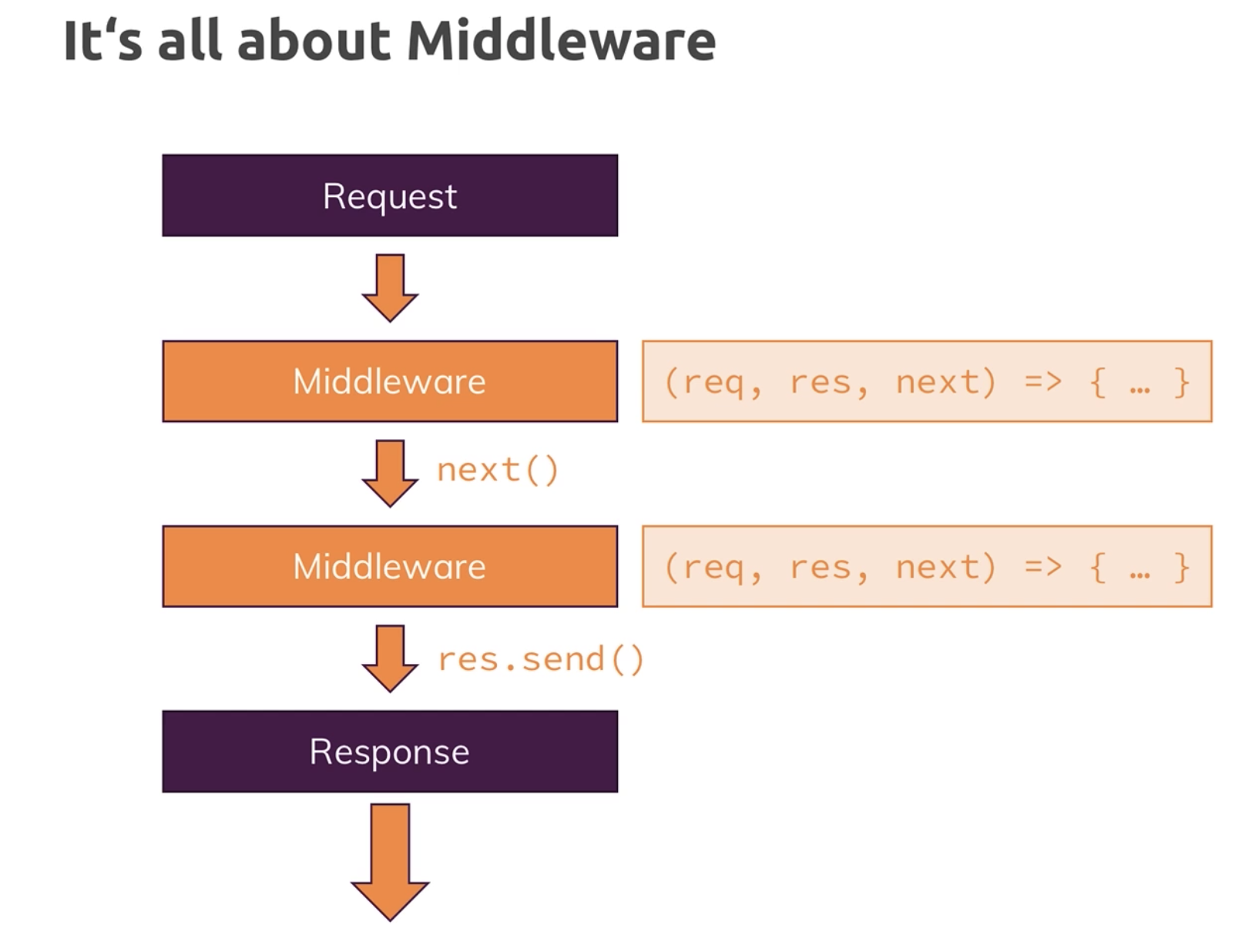# Middleware - Express
A middleware is a part of your node.js software that gets executed for every incoming request. -› Plug in functionallity
middleware needs to be mounted using the method app.use(path, middlewareFunction). The first path argument is optional. If you don’t pass it, the middleware will be executed for all requests.

app.use(); -> adds a new middleware
Simplest form:
app.use((req, res, next) => {});
next is a function that is passed by express -> go to the next middleware
app.use((req, res, next) => {
console.log('in the middleware');
next(); // continue in the next middleware
});
app.use((req, res, next) => {
console.log('in the next middleware');
// ...
});
to finish the request, send a response…
# Example:
const bodyParser = require(‘body-parser’);
const app = express();
app.use(bodyParser.urlencoded({ extended: false }));
app.use(bodyParser.json());
You can add as many middlewares as you like. They are put on the middleware stack.
Because a middleware is called for every incoming request, you need to make sure that your middleware does not do any long or expensive operations.
sort me…
# Using middleware (opens new window)
is used extensively in Express apps, for tasks from serving static files to error handling, to compressing HTTP responses
The middleware can perform any operation, execute any code, make changes to the request and response object, and it can also end the request-response cycle. If it does not end the cycle then it must call next()
Most apps will use third-party middleware in order to simplify common web development tasks like working with cookies, sessions, user authentication, accessing request POST and JSON data, logging, etc.
http://expressjs.com/en/resources/middleware.html
To use third party middleware you first need to install it into your app using NPM
$ npm install morgan
const express = require('express');
const logger = require('morgan');
const app = express();
app.use(logger('dev'));
...
You can write your own middleware functions, and you are likely to have to do so (if only to create error handling code).The only difference between a middleware function and a route handler callback is that middleware functions have a third argument next,
You can add a middleware function to the processing chain for all responses with app.use(), or for a specific HTTP verb using the associated method: app.get(), app.post(),
const express = require('express');
const app = express();
// An example middleware function
let a_middleware_function = function(req, res, next) {
// ... perform some operations
next(); // Call next() so Express will call the next middleware function in the chain.
};
// Function added with use() for all routes and verbs
app.use(a_middleware_function);
// Function added with use() for a specific route
app.use('/someroute', a_middleware_function);
// A middleware function added for a specific HTTP verb and route
app.get('/', a_middleware_function);
app.listen(3000);
The Express documentation has a lot more excellent documentation about using (opens new window) and writing (opens new window) Express middleware.